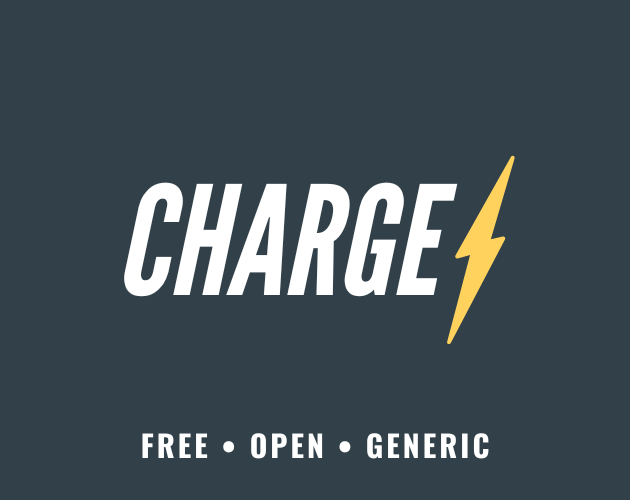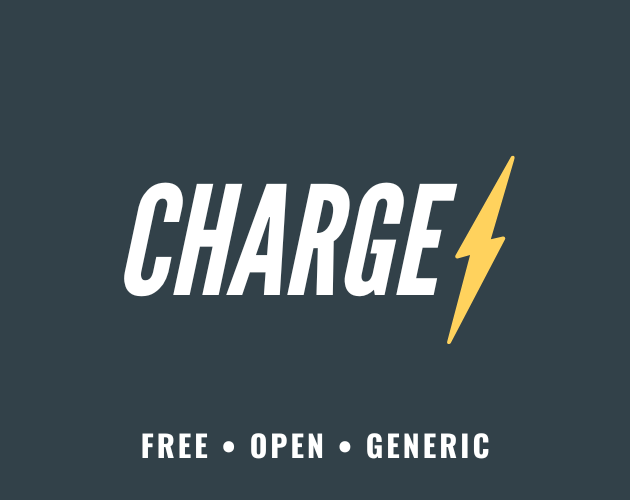
Locales
Links
Chapters
Power Your Storytelling
Character Creation
Mechanics
Preparing the Game
Hacking the Game
Community Resources
Conclusion
Extras
An alternate way to think about progression in Charge
- By othelarian
It's sometimes easier to grasp how a character progresses by declaring goals and see if they manage to reach them. Here you, dear reader, will find a way to simulate this.
My Words, My Goals
What is a Goal?
A goal is something a character wants to accomplish, like a mission or a quest. It's also a way to define what the character has to do, what they up for.
A character can have a single important goal, or multiple small ones. These can be set at creation or emerge during play.
When defining a goal for their character, a player has to think about two things:
- The goal's name
- The goal's difficulty
The name must be detailed enough for everyone, leaving little room about if the goal is progressing or not.
The difficulty can be easy, medium or hard.
Advancing a Goal
A goal has an associated clock with 8 segments (see options later for more ideas on this point). When a character makes progress towards one of their goals it's time to tick segments, depending on the goal's difficulty:
| Difficulty | Number of segments ticked |
|---|---|
| Easy | 3 |
| Medium | 2 |
| Hard | 1 |
Note: to follow the chassic Charge progression, a good guideline is to ask for the progression at the end of a session.
Finishing a Goal
When a goal's clock is full, the goal is complete, and the character receives a number of talent dots based on the difficulty.
| Difficulty | Number of talent dots gained |
|---|---|
| Easy | 1 |
| Medium | 2 |
| Hard | 3 |
The character can apply their freshly acquired talent dots immediately, but must keep it thematic to the goal. For example, it may not be a good choice to put a dot into Muscle if the goal is "writing a delicate recipe with flowers as main ingredient".
Dial: Rolling to Advance
Instead of automatically ticking a number of segments when a goal progresses, it's possible to roll to see if it advances even partially, or not.
As Charge is a narrative game at its heart, to determine the dice pool follow this guideline:
- Did the character take a risk just to advance their goal?
- Did working on the goal impact the character (condition related, etc)?
If it's complicated, here a fast and simple rule: use 2 dice.
The number of segments ticked depends on the result and the difficulty.
| Result | Name | What it means |
|---|---|---|
| 1-3 | Bad Outcome | No segments ticked |
| 4-5 | Partial Success | -1 segment ticked (so no tick at all for easy) |
| 6 | Full Success | Tick segments normally |
| 66 | Critical Success | +1 segment ticked (so 4 segments for easy) |
Dial: Rolling to Resolve
Another option is to roll to resolve the goal. The 2 ideas behind rolling to resolve are:
- Add a way to create more narrative around the goal's resolution
- Authorize a player to test their luck and try to finish a goal earlier
The roll is similar to an Action Roll, with the number of dice rolled related to the goal clock's status:
| Clock's status | Number of segments ticked | equivalent in action dot |
|---|---|---|
| Less than 1/4 of the clock | 0-2 | No roll, it's too soon |
| Between 1/4 and 1/2 | 3-4 | Like having 0 dot |
| Between 1/2 and 3/4 | 5-6 | 1 dot |
| More than 3/4 | 7 | 2 dot |
| Full clock | 8 | 3 dot |
Note: "number of segments ticked" is for a 8 segment clock.
Time to discover how to read the result:
| Result | What happens |
|---|---|
| 1-3 | The goal is lost, it's a failure |
| 4-5 | Partial success, one less talent dot or suffer a consequence |
| 6 | Success! Get your talent dots! |
| 66 | Critical Success! Get one more talent dots than expected! |
Dial: Changing the Clock
It's totally possible to change the default clock, to accelarate how often players obtain milestones. A good idea before doing so is to reread the clock chapter.
Also, if you want to character progression harder, try a new clock: the 12 segment clock!
Credits
The original idea comes from Ironsworn's vows. Goals are a humble adaptation of them for Charge.
Special thanks to LynnJones who enhance the readibility, RP for the useful feedback to make it more Charge, and therabidbanana for the progression guideline.

